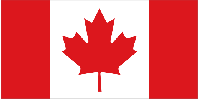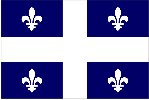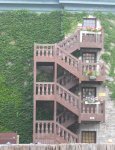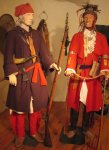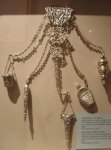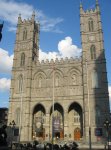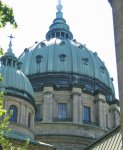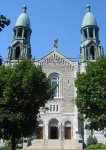Quebec is the only
Canadian province with a predominantly French-speaking population
and the only one whose sole official language is French at the
provincial level. Quebec is the largest province by area and its
second-largest administrative division. Quebec is Canada's second
most populous province, after Ontario. Most inhabitants live in
urban areas near the Saint Lawrence River between Montreal and
Quebec City, the capital. English-speaking communities and
English-language institutions are concentrated in the west of the
island of Montreal but are also significantly present in the
Outaouais, Eastern Townships, and Gaspé regions. The
Nord-du-Québec region, occupying the northern half of the
province, is sparsely populated and inhabited primarily by
Aboriginal peoples.
Quebec independence
debates have played a large role in the politics of the province.
Parti Québécois governments have held referendums on
sovereignty in 1980 and 1995; both were voted down by voters, the
latter defeated by a very narrow margin. In 2006, the House of
Commons of Canada passed a symbolic motion recognizing the
"Québécois as a nation within a united Canada”. While
the province's substantial natural resources have long been the
mainstay of its economy, sectors of the knowledge economy such as
aerospace, information and communication technologies,
biotechnology and the pharmaceutical industry also play leading
roles. These many industries have all contributed to helping
Quebec become the second most economically influential province,
second only to Ontario.
< Back to the index
